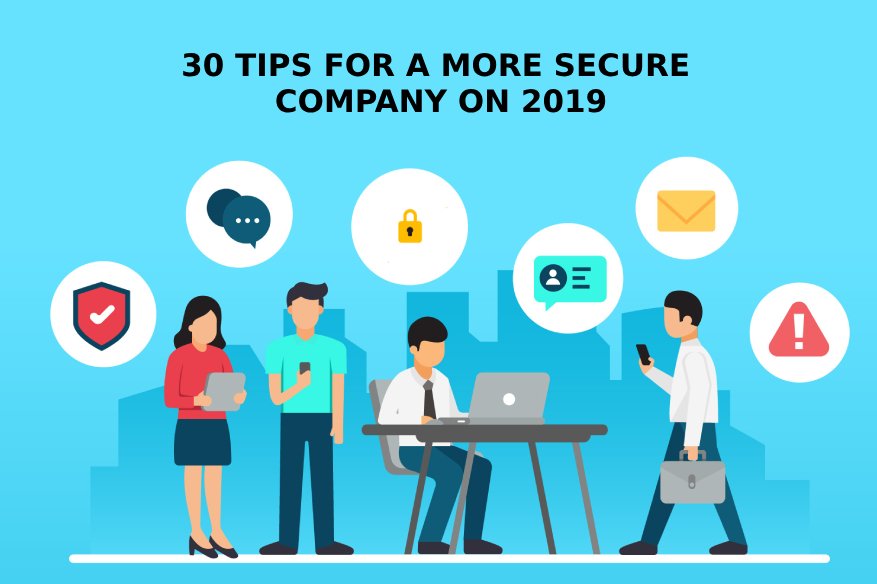30 Tips For A More Secure Company On 2019

We are set to end 2018, where we here at Hackercombat.com informed you for the whole year the cybersecurity news you need to know. And just like clockwork, the new year provides all of us a refreshing start. To start 2019 right is to start the New Year’s resolution of a better cybersecurity behavior, especially in the enterprise. The United Kingdom’s Information Commissioner’s Office has exposed since January 2018 that four of every five security breaches were the direct result of human error, dealing with incorrect data handling compared to a genuine case of hacking.
We do not discredit the hackers, they continued their research and development in 2018 creating a new threat for the world. We saw the fruits of their labor with huge uptake of cryptojacking malware, replacing the ransomware which was very rampant in the previous year, 2017. But compared to human error from people working in the enterprise, the chance of dealing with an external threat than an internal one is an apple to orange comparison.
Aside from building a robust system, efficient update/patching policy and well-developed communication line with the service providers (ISPs, hardware supplier, etc.), an employee needs to know not only how to use the system, but also detect indications of an abnormal situation while using the system.
Here are some safe computing tips everyone in the enterprise should always remember:
- Request additional file storage for projects with a large number of files.
- Avoid opening attachments from an untrusted source.
- Avoid providing your user ID and password or other confidential information in an email or in a response to an email.
- Never transact with a website, unless it provides TLS encryption.
- Save copies of important outgoing email.
- Be wary of email phishing scams
- Never click links from an unexpected email message.
- Lock your computer when not attended.
- Understand the type of data stored on your machine.
- Log off or shutdown when going home
- Organize your email and files by project or work type.
- Disconnect your computer from the wireless network when using a wired network.
- Patch and update your operating system, Microsoft release their patches every second Tuesday of the month.
- Install and update your anti-virus and anti-malware with the latest security definitions.
- Avoid using personal accounts for business workflow.
- Create a unique user ID, without administrative privileges when sharing a computer with others.
- Enable pop-up blocker on your browser.
- Make an informed and rational decision prior to installing or downloading software on your computer.
- Lock your office computer when you leave.
- Avoid storing personally identifiable information on local storage devices, e.g. laptop, USB, smartphone.
- Back up your data regularly
- Segregate your personal files from your business files.
- Organize your files by project or work type.
- Make sure to securely delete data from systems before disposal when replacing or upgrading your computer.
- Be cautious when handling attachments and links in email, chat rooms or instant messages.
- Avoid responding to questions via pop-up windows, or click on links in a pop-up window
- Be cautious when using Peer to Peer File Sharing applications.
- Avoid responding to questions via pop-up windows, or click on links in a pop-up window
- Avoid clicking advert links that pretend to be the legitimate download link on websites.
- Be cautious when using Peer to Peer File Sharing applications.